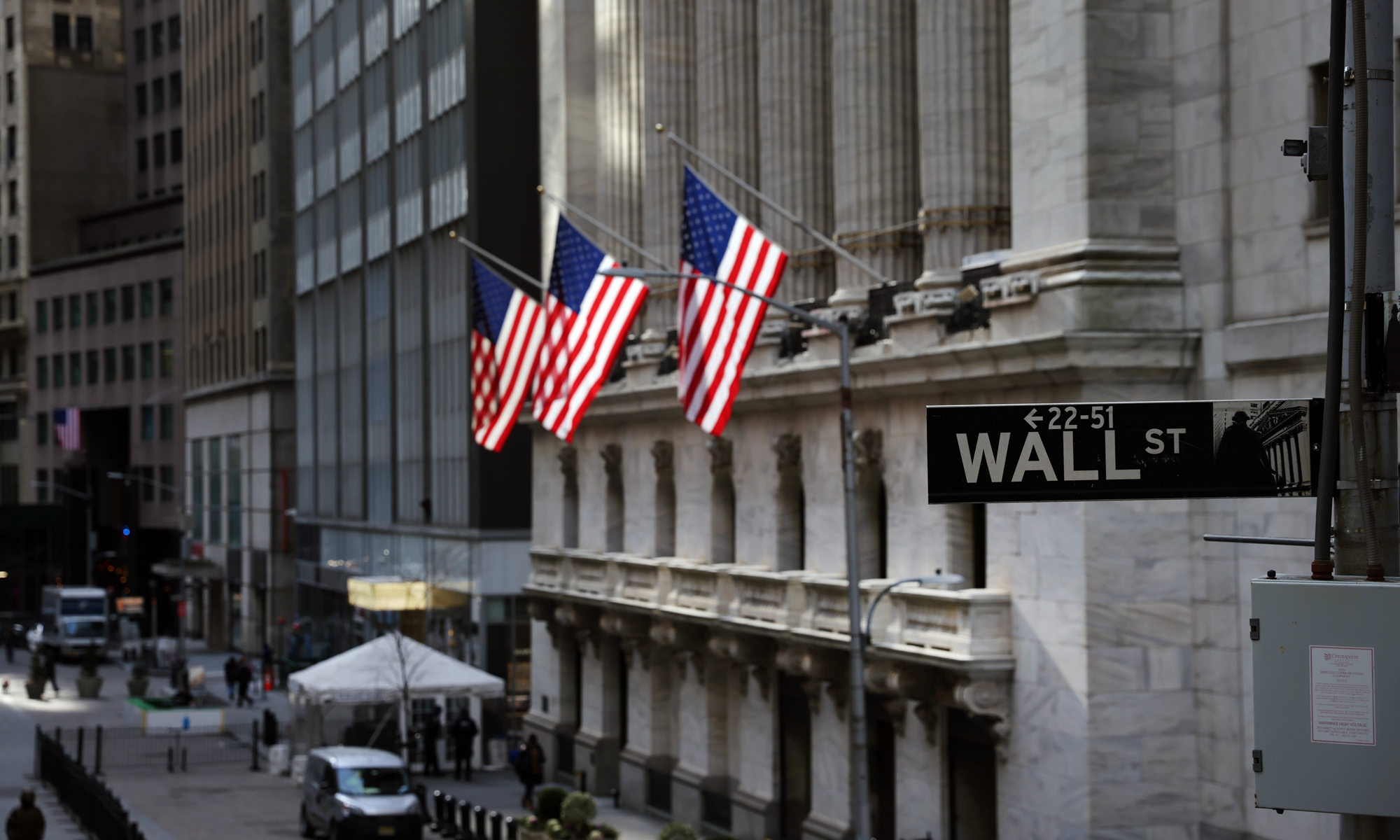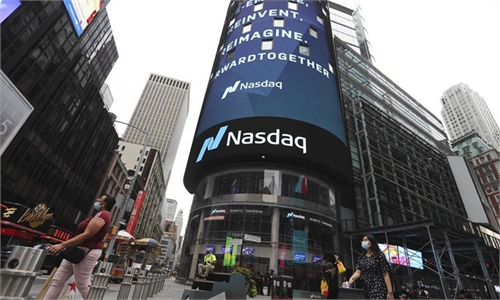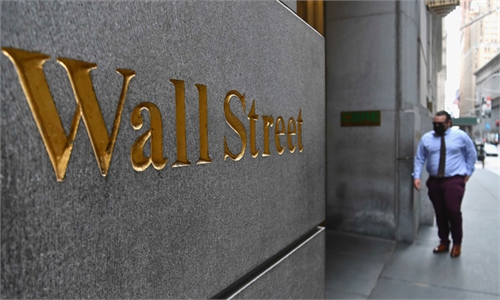Grassroots’ epic campaign against Wall Street elites reveals rigidity of classes

Wall Street Photo: AFP
At the beginning of 2021, an extraordinary phenomenon debuted on Wall Street. Individual investors, who are often called "dumb money" in the stock market by US analysts, united and pushed up the shares of some small companies, challenging the 1 percent in the country. Yet, it ended up with relevant trading being restricted, again showing the rules of the game are controlled by the tight grasp of US elites.
The episode reflects a chronic illness in the US - rigidity of social classes and the winner-takes-all model. Wall Street giants have strong professional capabilities, yet they are too greedy in the pursuit of profits. They scarcely use their tools to solve problems in the US' national development, focusing instead only on what benefits themselves. As a result, grassroots action finally forged a strong force to stand against them.
It has never been a secret that Wall Street serves the elites in the US. Wealthy people entrust their money to seasoned professionals there. One of their practices is short selling, meaning an investor borrows a stock, sells the stock (betting that it will drop in price) and then buys the stock back later for less money. Their targets are usually small or declining companies, such as GameStop, a US videogame and merchandise retailer, which has had poor stock performance in recent years.
The American middle class, however, holds a strong nostalgia for GameStop. More importantly, their hatred toward the elites was triggered. In the internet era, the top class can monopolize capital but cannot monopolize information. Retail investors started to gather fragmented information on the complicated rules of the stock market and collectively bought increasing GameStop shares, among other companies. To put it simply, the move pulled the rug from under the feet of some big Wall Street players, or hedge funds, leaving them no room to short sell, or in other words, profit.
Due to the increasing gap between the wealthy and the poor, grassroots Americans are seeking change. As their actions in the stock market hurt the interests of elites, the latter ended the game by totally blocking their channel to make money.
The result of the US' style of fair competition and a free market is that wealth continues to flow toward people of high capacity while the lost classes keep being marginalized, with their living standards getting worse. It seems to be an outcome of survival of the fittest, but thanks to the government's inaction, an absolutely unfair phenomenon has been shaped.
To be honest, people uniting to grab money from elites is not a good way to resolve the puzzle and is surely not a favorable measure for the development of the US stock market and economy. But the people have no other way to fix the problem other than taking matters into their own hands. However, once such an approach is abused, much more dangerous situations may emerge, and the US may not be able to bring it under control.
In this regard, the Chinese government has shown its foresight by promoting poverty alleviation, inclusive growth and regional economic development in recent years to address the issue of income inequality.
Today, Wall Street stopped the volatility of the stock market by ending some of its trading. But it failed to dig deep to the core enigma in the US economy - the growing gap between rich and poor and the subsequent social inequality. The US is sick, thanks to the winner-takes-all market. Unfortunately, Wall Street may be unlikely to address these issues any time soon, as the Democratic Party, which has recently assumed power, has closer ties to the US capital and elites.
A photo has been circulating on the internet. It shows the facade of an exquisite villa, which represents the US stock market, and a pile of ruins behind it, representing the US economy. It explains that US elites make their cakes bigger by borrowing each other's money. Once they fail and have to pay their debts, they will become the ruins. Their greed may one day become their grave.
It also provoked a question: Should a country's development be driven by labor, or capital?
In a US-style free market, when the 1 percent gets a huge amount of the county's wealth, they do not want to work hard anymore as they are capable of gaining profit easily and quickly by investing in stocks. Over time, more and more people will share the same mentality, believing hard work is not an efficient way to improve their living standards, and they will all want to obtain quick money from paying stock games.
The US should sober up - the financial industry is supposed to serve the real economy, rather than battling for cake against it. Only when a stock market crisis comes, and only when the US elites realize the development of the real economy can help withstand the test, could the country see the silver lining of these economic and social issues being fixed. Yet without a sharp decline in US politicians' support rates, they may never face up to the hard truth.
The article is compiled by Global Times reporter based on an interview with Sun Lijian, director of the Financial Research Center at Fudan University. opinion@globaltimes.com.cn


